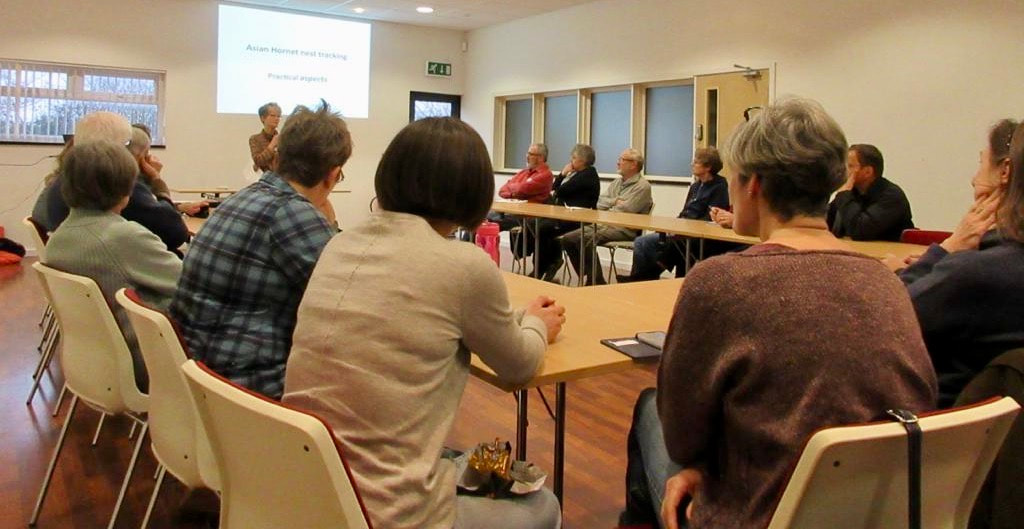|
Somerset BKA with Devon BKA - on behalf of the South West Beekeepers’ Forum – organised a practical one-day training event for about 150 members of the region's Asian hornet action teams on January 25.
The event was hugely successful and elicited comments including: 'Congratulations on today - a Triumph'; 'It really was a key event and a turning point in AH control in the SW'; 'THANK YOU SO MUCH FOR TODAY!!!' The programme included workshops, presentations, displays and discussions to help AHAT members to learn new skills, share good practice and discover the latest developments. Speakers included Dr Peter Kennedy of the University of Exeter and Dr Sarah Bunker, author of The Asian Hornet Handbook; Jersey’s Asian hornet coordinator, Alastair Christie, shared his experience tracking the non-native hornets on the Channel Islands. Somerset’s Asian hornet action team co-ordinator Lynne Ingram said: “We are on the Asian hornet frontline here in the South West and this training day was a great opportunity to prepare ourselves for the season ahead. “Asian hornets don’t respect boundaries so it was important to start preparing to work together across the region. Although it was mainly beekeepers who attended the event, one of the key messages to get across is that Asian hornets are not just a problem for beekeepers. “We now know that these hornets build nests in garden hedges, bramble patches, in holes in the ground and also on buildings. We will be working hard to educate the public so that everyone can recognise a hornet and report a sighting. With thousands of people looking out for them, we have some chance of slowing the invasion.” SWBKF Chair Peter Darley commented: “I certainly learned a lot from some very good speakers and workshops and came away with a far clearer idea on how to proceed in our preparations to fend off the coming invasion…All of us can learn from Somerset's lead and, as a Forum, we are lucky to have them and their experience to show us the way.” Asian hornets (Vespa velutina nigrithorax) have distinctive orange faces, yellow tipped legs and are smaller than the bright yellow striped European hornet. They are a notifiable invasive species and sightings should be reported immediately:
Comments are closed.
|
Archives
March 2024
Categories
All
|
Somerset Beekeepers Association Charity © 2021 Registered CIO Charity 1206483
Affiliated to the British Beekeepers Association
Click here to view our Privacy Policy
Affiliated to the British Beekeepers Association
Click here to view our Privacy Policy

 RSS Feed
RSS Feed
